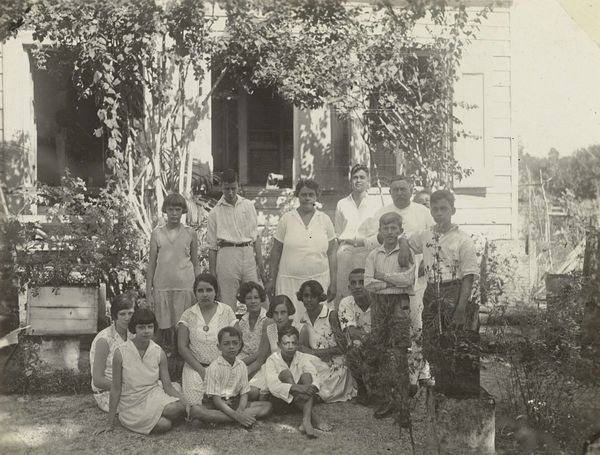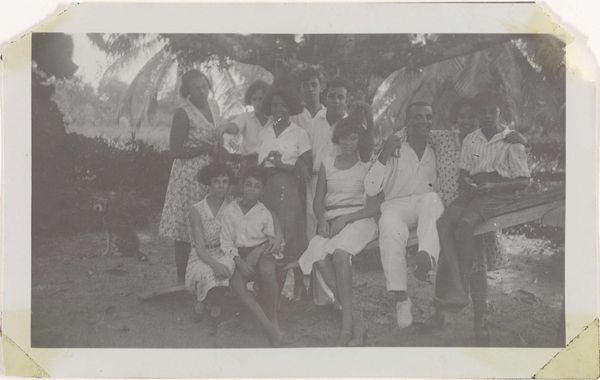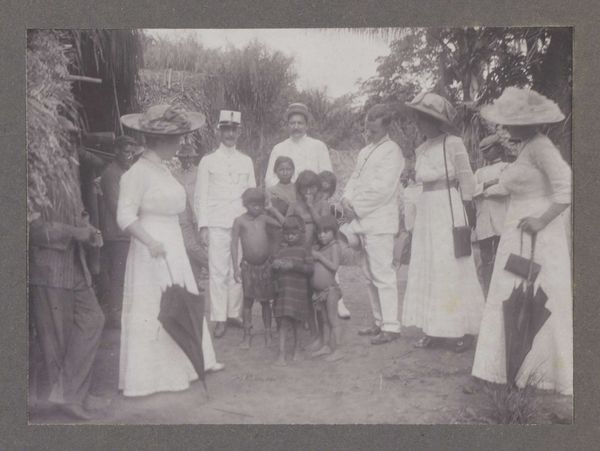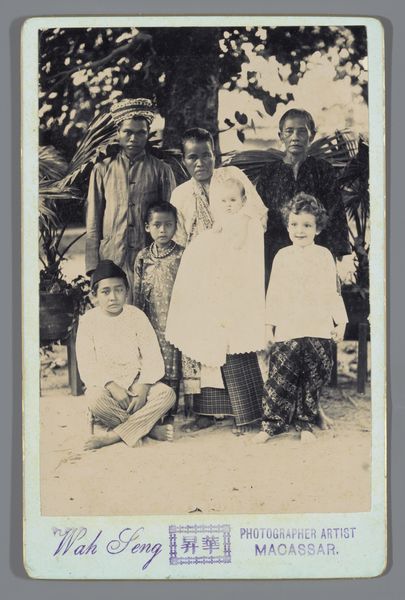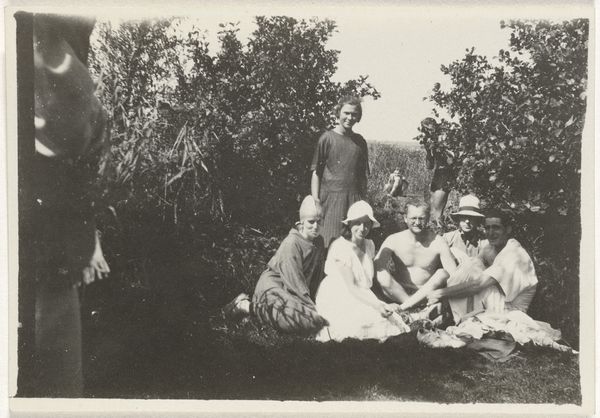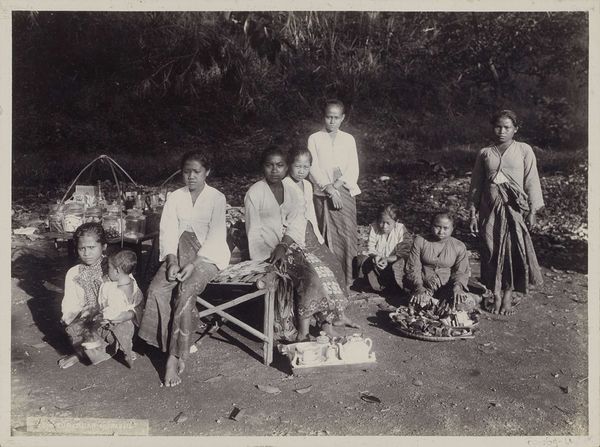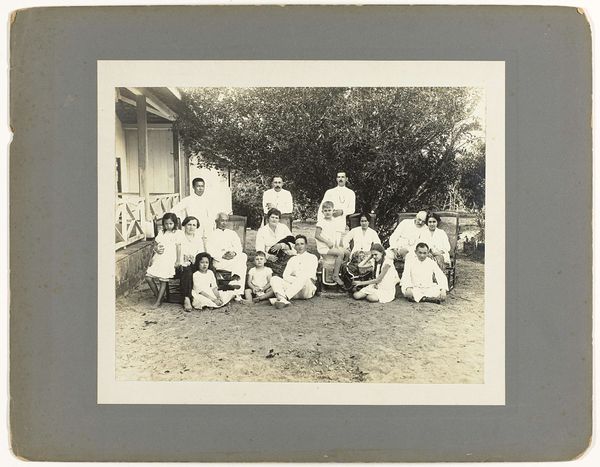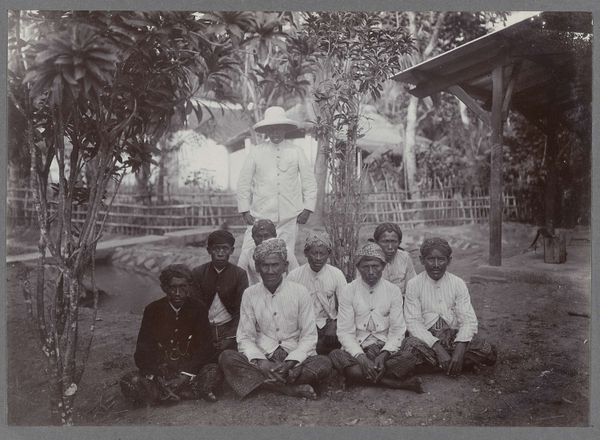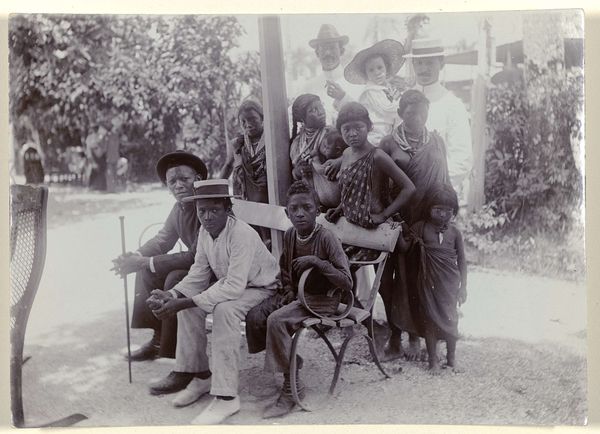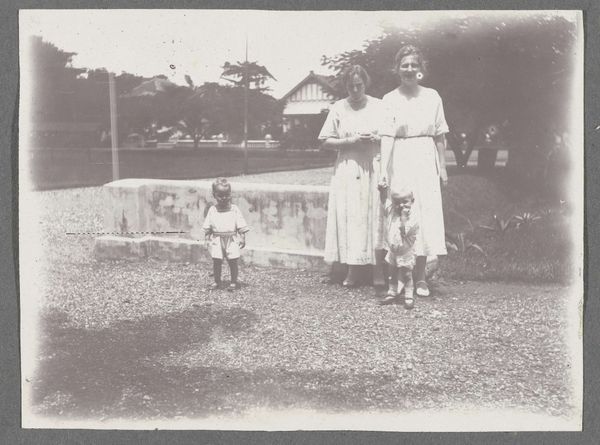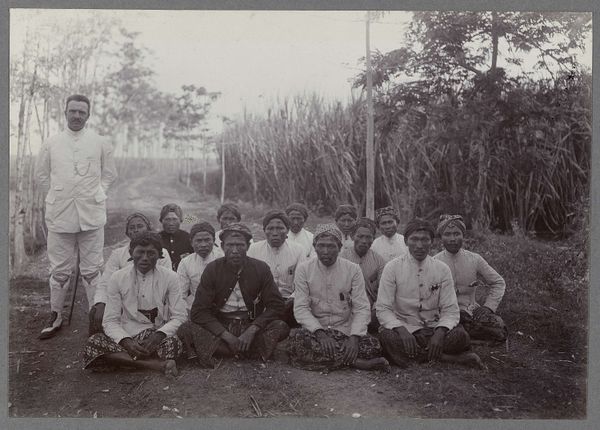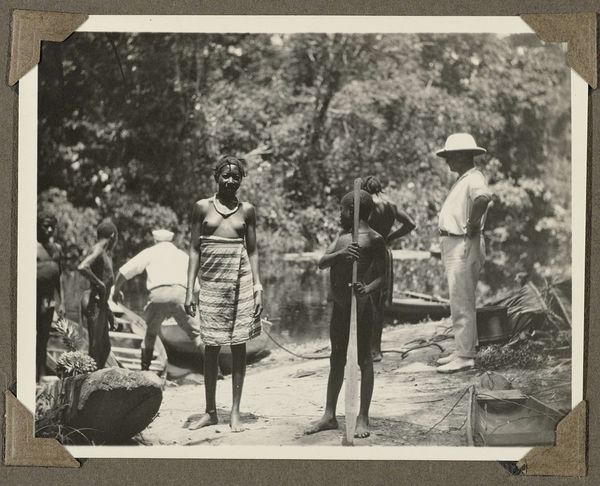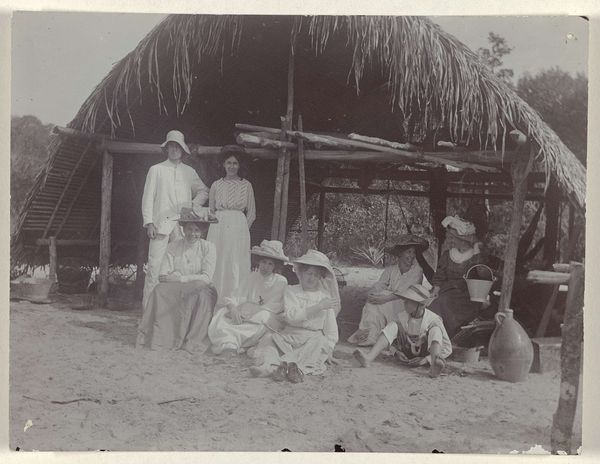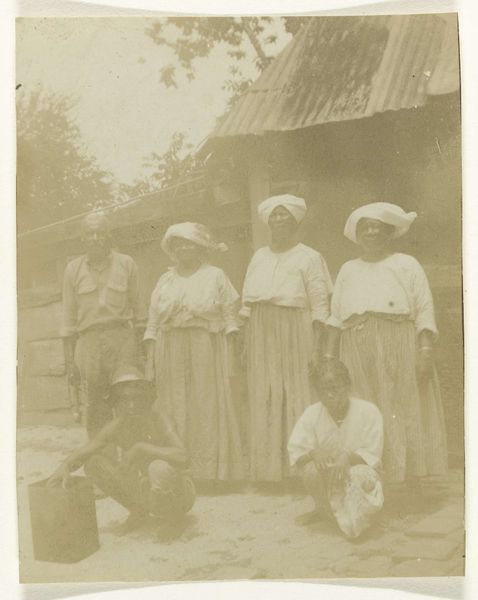
Groepsportret van de familie Brouwers op plantage Accaribo, Suriname 1922
0:00
0:00
anonymous
Rijksmuseum
gelatin-silver-print, photography, gelatin-silver-print
#
portrait
#
gelatin-silver-print
#
photography
#
group-portraits
#
gelatin-silver-print
Dimensions: height 80 mm, width 102 mm
Copyright: Rijks Museum: Open Domain
Editor: We’re looking at a gelatin silver print from 1922, titled "Groepsportret van de familie Brouwers op plantage Accaribo, Suriname," currently housed at the Rijksmuseum. It's a family portrait, and I'm immediately struck by the formality of the scene set against a very lush, almost overpowering, tropical backdrop. What story do you think this image is trying to tell us? Curator: This photograph invites us to consider the complexities of colonial legacies. Here we have a family portrait staged on a plantation, likely built on exploited labor. The very act of assembling for a photograph was itself an assertion of power and permanence. It begs us to consider who is missing from the frame, whose labor allowed this gathering to happen. How does this contrast between a staged scene of prosperity and what you imagine to be the daily realities of plantation life speak to you? Editor: I hadn't thought about who isn't represented. It seems almost naive to view it as a simple family portrait now. The landscape is so vivid, so alive. How does this connect with social structures? Curator: The Surinamese landscape serves as both a backdrop and a silent witness. Consider the plantation itself as a site of forced labor and cultural erasure. The family’s attempt to project an image of stability and control is inherently intertwined with the exploitation of the land and its people. Do you perceive a tension between the imposed order of the family group and the unruly, ‘untamed’ nature surrounding them? Editor: I do. The composition seems like a conscious attempt to exert dominance, not only of themselves but to set a firm boundary. Curator: Precisely. The picture freezes them at a single time. Photography at that moment had the social currency to document 'ownership', but it never truly does. It only represents it as they desired it to be. Editor: This photograph initially seemed like a simple portrait, but discussing its socio-historical context has opened my eyes to how staged images can be used to convey power, to mask uncomfortable truths. It makes you think about the act of capturing images during the height of the colonies and question whose narrative it is trying to write. Curator: Indeed. And by grappling with these questions, we confront not just the past, but the lingering echoes of colonialism in our present. The truth lies in the multiple angles of a picture.
Comments
No comments
Be the first to comment and join the conversation on the ultimate creative platform.
